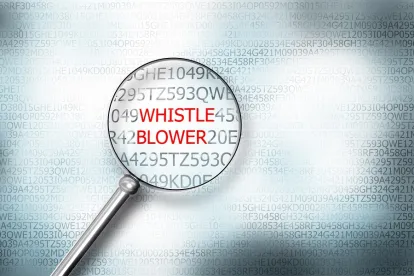Last week brought multiple announcements of new False Claims Act (“FCA”) settlements by the Department of Justice (“DOJ”). Of the four cases which settled, three were initiated by whistleblowers under the FCA’s qui tam provisions, while the fourth was closely related to a previously settled qui tam case. The FCA allows a private individual, with inside knowledge of fraud resulting in a financial loss to the United States Government, to file a lawsuit on behalf of the Government in federal court. Once the Government recovers any damages in the case, the whistleblower who initiated the lawsuit is eligible for a reward of between 15-30% of the total amount recovered.
First, DOJ announced on Monday, April 6, that it settled a qui tam FCA lawsuit with Georgia-based MiMedx Group Inc. (“MiMedx”) for $6.5 million. Former MiMedx sales representatives brought the lawsuit originally, which claimed that MiMedx defrauded the United States Department of Veterans Affairs (“VA”) by artificially inflating pricing for human tissue graft products it sold. This alleged fraud was accomplished by MiMedx submitting false statements and disclosures to the VA, describing its commercial pricing practices. Before becoming aware of the government investigation into these actions, MiMedx disclosed to the VA that it had engaged in improper billing practices. This proactive disclosure by MiMedx was acknowledged in the settlement agreement and most likely allowed it to settle for less than the DOJ would have otherwise accepted. The two whistleblowers, Jess Kruchoski and Luke Tornquist will split $1,625,000 of the settlement amount as an award for their role in initiating the case on behalf of the United States.
On the same day as the MiMedx settlement, DOJ also announced a $2 million FCA settlement with New Jersey chiropractor Dr. David Podell. Dr. Podell was alleged to have defrauded Medicare by billing for medically unnecessary viscosupplementation injections and knee braces, in addition to receiving illegal kickbacks from a knee brace manufacturer for using its products. Providing patients with, and billing Medicare for, unnecessary medical treatments and devices not only puts patients at risk but also fraudulently depletes taxpayer financed Medicare funds. The case against Dr. Podell was an offshoot of a previous qui tam FCA case settled in October for $7.13 million. However, the portion of the case against Dr. Podell did not appear to result in a whistleblower award because it was instigated by “a government investigation that arose out of a critical analysis of Medicare claims data.”
Additionally, another settlement was announced in a long running bid-rigging case that previously brought in over $205 million in settlements. Jier Shin Korea Co Ltd., and the company’s president Sang Joo Lee, agreed to a $2 million settlement, which settles both FCA and antitrust allegations related to a South Korean bid-rigging scheme on contracts to supply fuel to the United States military. Seven separate companies and numerous individuals had faced criminal, antitrust, and FCA liability as a result of their collusion to artificially inflate fuel prices that the United States military ultimately paid. The agreement announced last week with Jier Shin Korea and Sang Joo Lee represents the sixth FCA settlement reached by the DOJ in relation to this scheme. A South Korean whistleblower first brought the FCA case against all the parties on behalf of the United States Government.
Finally, DOJ announced on Friday an FCA settlement for $4.03 million with Encore Rehabilitation Services LLC (“Encore”) for allegedly submitting false claims to Medicare for rehabilitation therapy services. Three separate qui tam FCA complaints were filed against Encore by a combined four whistleblowers, all former Encore employees. The whistleblowers, Linda Anderson, Reza Saffarian, Audrey Theile, and Adam LaFerriere, will split a yet to be determined portion of the settlement amount. The FCA complaints against Encore alleged that its billing practices in three Michigan skilled nursing facilities resulted in fraudulent Medicare reimbursement. These practices included billing Medicare for unnecessary, unreasonable, or unskilled therapy performed on patients or for double billing some therapy sessions as both individual and group sessions.




 />i
/>i

